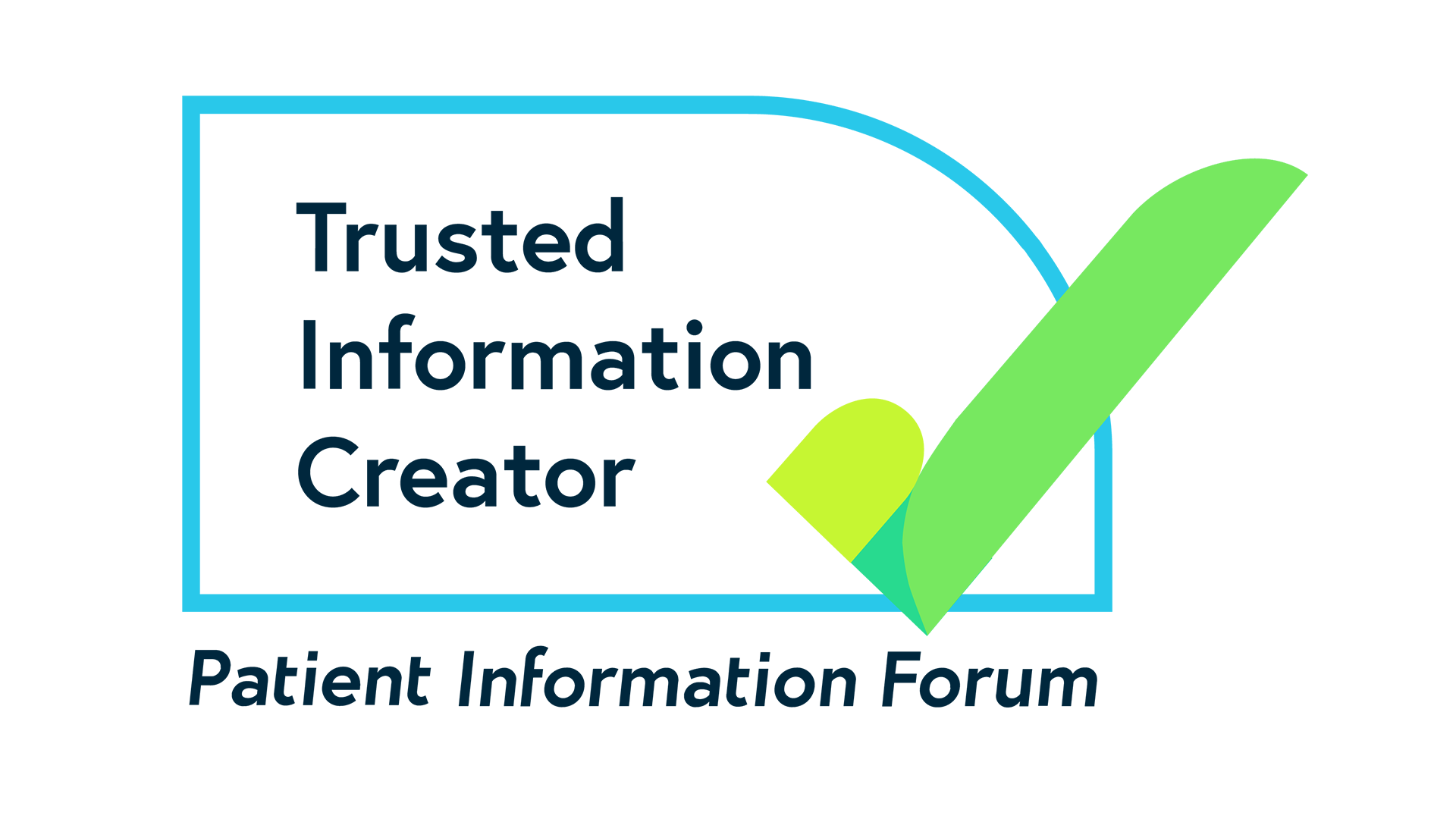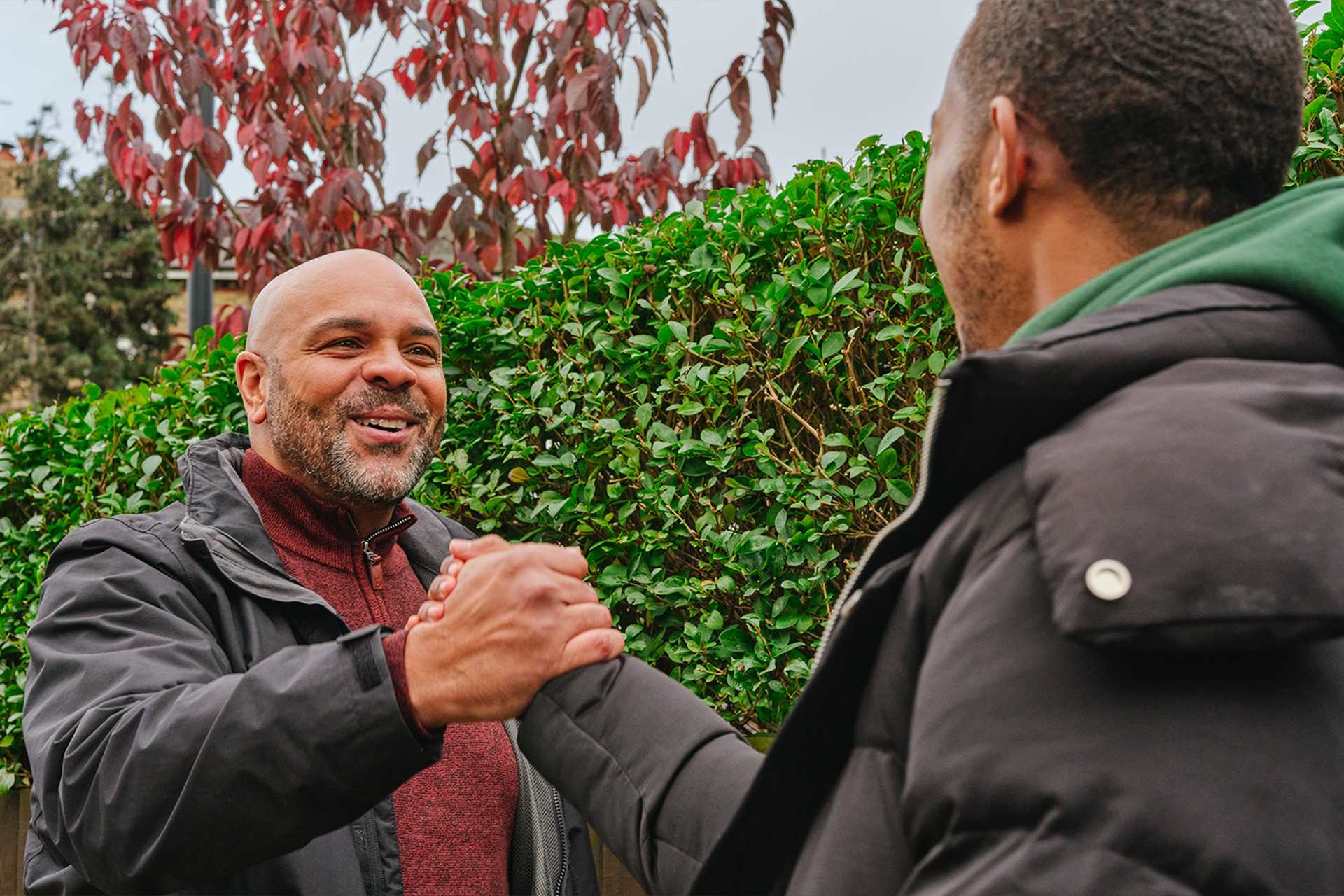Talking to your GP about your mental health can feel daunting. You might be unsure how to explain your feelings, find it hard to open up to someone you don’t know, or worry you won’t be listened to or taken seriously. You might also worry that your GP won’t fully understand your cultural background.
Lots of people feel this way – but it’s still important to reach out for help. GPs are there to help, and they’re very used to talking about mental health. They should always have your best interests at heart and respect your experiences and identity. If you ever feel they don’t, there are steps you can take to make sure your voice is heard.
If you’re feeling unsure, we’re here to help. This guide takes you through the whole process – from how to prepare, to what to expect on the day, to what happens afterwards – so you can feel more confident getting the support you need.
Your GP can help by:
- asking questions about your thoughts and feelings to help you understand what you’re going through
- offering medication or talking therapy if they feel it will help you
- suggesting small lifestyle changes that can make a difference
- arranging another appointment to check in on how you’re doing
- referring you to specialist services if you need more support
How to find and register with a GP
To see a GP, you need to be registered with a local GP practice (also called a GP surgery). Registering is usually quick and free, and you can do it by calling, emailing or visiting the practice. To find a GP near you, use these tools:
- England: NHS Find a GP
- Wales: NHS 111 Wales
- Scotland: NHS Inform
- Northern Ireland: NI Direct
You don’t have to stay with the same GP forever. If you’ve had a bad experience or want a practice that offers particular support, you can register with another one. You can also request to speak to another GP in the same practice or request someone who has more experience in mental health.
Every GP practice has a different system for booking appointments. This could be by calling the practice, booking online, or through the NHS app.
Appointments normally last about ten minutes. If you think you’ll need more time to talk about your mental health, you can ask for a ‘double appointment’.
Depending on your practice, you might be offered an in-person, phone, or video appointment.
You can book an appointment with any GP at your practice, but you might feel more comfortable with a specific person. For example, you may prefer to see a male or female doctor, or someone who speaks your language.
You can also ask to see a GP who shares your cultural background. It’s not always possible to guarantee this, but practices should try to help where they can.
For any preferences, contact your GP surgery and let the receptionist know. Telling them why it matters to you, and how it could support your health, can make it easier for them to meet your needs. They’re used to these kinds of requests, so don’t worry about asking.
How long you have to wait for a GP appointment depends on how busy your practice is. Sometimes you might get an appointment within a few days, other times it could take longer.
If you need to see someone urgently, you can ask for an emergency appointment. This might mean you can’t see your usual GP, but it means you’ll be seen more quickly. You can also call NHS 111 if you need urgent support.
If you’d prefer to see a specific GP, you might need to wait until they have an available slot.
Waiting can be frustrating and tiring, and the system isn’t always easy to navigate. But it’s important to keep asking for the support you need. In the meantime, you can always contact a helpline.
How to prepare for your appointment
GP appointments are often short, and it’s normal to feel nervous or forget what you wanted to say. Preparing in advance can make the conversation easier and help you get the support you need. Here are some things you can do:
Make a list of your symptoms, when they happen, and how they affect your daily life. You can also note down key events, stressful situations, or anything else you feel has had an impact on how you’re feeling.
If you have any other health conditions, are taking any medications, or getting any support already, write this down so you can let your doctor know. This helps them to get a full picture of what’s been going on. You could also write down any herbal remedies or supplements you’re taking.
Think about what you want to get out of this appointment and prepare some questions to ask. For example, do you want to ask about specific support and treatment options, like talking therapy or medication, or just get some general advice?
Here are some things you could ask:
- What type of mental health problem might I have?
- How can it be treated?
- Could talking therapy or medication help?
- How long might treatment take?
- What can I do to help myself?
If it helps you feel more comfortable, you can bring a trusted friend or family member to your appointment. They can come into the appointment with you or just wait outside. Talking things through with them beforehand might also help you feel more confident.
It’s your right for your appointment to be made accessible for you. Before you go to your appointment, let your GP know about any access needs you have. This will then go on your record so they can organise support. Your GP can make appointments more accessible by:
- providing a chaperone for your appointment (someone to go with you)
- providing a BSL (British Sign Language) interpreter when you visit your GP
- providing information in a way that is more accessible, for example written down in an easy-to-read format
- providing an interpreter if English isn’t your first language
- making the building more accessible
If your mental health condition counts as a disability under the Equality Act, your GP surgery has a legal duty to make reasonable adjustments to support you. This might mean offering double appointments, letting you wait in a quieter space, or booking appointments in a different way if phoning them is difficult.
For more information on how GP practices and the NHS should support access needs, see the Accessible Information Standard.
What happens during your appointment
Every GP is different, so appointments can vary. Sometimes they might feel quite formal or clinical, and other times they might feel more friendly and warm. But the goal is always the same – for your GP to understand what you’re going through and make sure you get the right support.
Here’s what to expect at your appointment:
Your GP will ask about the issues you’re experiencing, your symptoms, and any other information that can help them understand your health. This could include mental health, physical health, or both.
You can expect questions about:
- your physical symptoms and how you’ve been feeling
- any recent events that might be affecting how you feel
- your drug and alcohol use
- any thoughts you might have had about hurting yourself
- your medical history and family history, especially any mental health conditions
It’s important to answer your GP’s questions as honestly and openly as possible. It can feel scary, but sharing as much detail as you can helps them give the best advice and support. If you’ve prepared notes beforehand, using these can make things easier. When you’re talking about your experiences, try to:
- explain how you’ve been feeling over the past few weeks or months, any symptoms you’ve noticed, and any changes in your mood or behaviour
- tell them about any events in your life that may be affecting your mental health
- focus on describing your experiences and symptoms rather than trying to guess a diagnosis
- use words that feel natural to you — you don’t need to use medical terms to get help
Remember, no concern is too small, and your GP is there to support you.
Based on what you say, your GP might:
- give you a diagnosis, like anxiety, depression, or stress
- refer you to a talking therapy service or specialist mental health team
- provide contact details for services you can reach out to yourself
- give you advice on how to support yourself at home, like reducing stress, improving sleep, exercising, or eating well
- prescribe medication and explain what it’s for, including the possible side effects and benefits
Your GP might also book you in for a follow-up appointment in a few weeks to check how you’re doing. If you’re worried about your mental health during that time, you can ask to see them again sooner.
Your GP might give you a diagnosis, for example of depression or anxiety. But this doesn’t always happen in your first appointment. Sometimes your GP will want to see how things develop over time before making a diagnosis, or they might refer you to a specialist team for further assessment.
A diagnosis can be helpful, but it can take a long time to get, and you don’t need one to start getting help. Your GP can still offer support based on your symptoms.
It’s not always easy to follow what doctors are saying, especially if you’re feeling vulnerable right now. Here’s what you can do if it’s hard to understand:
- Tell your GP that you don’t understand and ask them to explain again.
- Ask for the information to be written down or provided in a format that works for you.
- Speak to another healthcare professional, like a pharmacist, to get some clarity. You can talk to a pharmacist any time just by visiting them at the pharmacy.
- If you feel comfortable to share, talk to friends and family to get help understanding what’s been offered.
- If English isn’t your first language, ask your doctor for an interpreter or bring someone with you who can translate. You can also ask for a translation of any written information.
In most cases, everything you tell your GP is confidential. This means they won’t share it with anyone else without your permission.
However, if your GP believes you or someone else might be at risk of harm, they may need to contact social services or the police. If this is the case, they’ll always try to let you know first.
When it comes to your parents or carers, it’s entirely your choice whether you tell them or not. Your doctor might encourage you to involve them, but you don’t have to. If you prefer, the GP can speak to them on your behalf.
What you tell your GP will also be written in your medical record. This is a file of your medical history, including any medication you take, allergies, and past appointments. Your medical record is kept confidential and secure, but other NHS health professionals may be able to see this to make sure you get the right care.
What happens after your appointment
What happens next depends on what support and advice your GP has offered. If you’ve been given contacts for a support service or suggestions for how to manage your symptoms at home, it’s up to you to take on this advice. If you’d like to, you can arrange a follow-up appointment to see how you’re getting on and if your symptoms have improved.
If you’ve been offered medication or a referral, here’s what to expect:
If your GP has prescribed medication, they may schedule regular check-ups to see how it’s working and how you’re feeling. If you notice side effects or feel worse, you should contact your GP sooner rather than waiting for the next appointment.
You can also go to your pharmacist for a Medicines Use Review (MUR), which is a free service where you can talk through all your medications. The pharmacist can explain what each medicine does and any possible side effects.
If you want to stop taking your medication, speak to your GP first so you can stop taking it safely.
If your GP has referred you to a talking therapy service, you should be contacted by the service to arrange appointments. Talking therapy can include counselling, cognitive behavioural therapy (CBT), or lots of other approaches.
It’s normal to have to wait a few weeks before your first session. You can still speak to your GP if you’re worried or if your symptoms change while you’re waiting.
In England, you don’t always need to see your GP to get talking therapy. Many areas let you self-refer directly.
Sometimes your GP may refer you to a specialist team for more experienced help. This could be a community mental health team, crisis team, early intervention team, or a team for a specific condition like an eating disorder or personality disorder. These teams are made up of psychiatrists, psychologists, social workers, support workers, and occupational therapists.
After your GP makes a referral, you will usually be contacted by the specialist service to arrange your first appointment. This might be by phone, text, letter, or email, depending on the service. It’s normal to have to wait a while before your first session, but you can always contact your GP if you have questions or if your symptoms change while you’re waiting.
Even if you’re referred somewhere else, your GP will continue to look after your health and work closely with the specialist team to make sure you get the right support.
If you’re not happy with your appointment
Sometimes, you might leave a GP appointment feeling unsure or unhappy about the advice or treatment you were offered. If this happens, it’s important to remember that you have options and your voice matters. Here’s what you can do:
If you don’t agree with the treatment or you’re unsure about it, the first step is to share your concerns with your GP. You can talk about what you want to get from your appointment and work together to find a plan that feels right for you.
If you’re still not happy with the outcome, it’s okay to get a second opinion. You can ask your GP to recommend another doctor to assess you. You have the right to see a different GP in the same practice, or you can register at a new GP surgery if you need. Sometimes, seeing a different doctor can make all the difference.
If you have a problem with your GP, you can let the receptionist or the practice manager know. Explain what’s happened, why you’re not happy, and what you’d like to happen next. They should be able to offer advice on what to do next and how you can get support that’s right for you.
If you’re still unhappy with your GP or practice, an advocate could support you. Advocates are independent from the NHS, so they don’t work for your GP or hospital. They’re free to use, and their role is to make sure your voice is heard. They can go with you to appointments, help you explain your concerns, advise you on your rights, and support you if you want to make a complaint.
There are two different types of advocates:
- General advocates can support you with concerns about your GP or treatment. They help you get the support you want but can’t handle formal complaints.
- NHS complaints advocates specialise in helping you make formal complaints about your GP, practice, or NHS services. They can guide you through the process and make sure your complaint is heard properly.
You can find an advocate by asking your GP or practice manager if there’s a local advocacy service, or by searching online for local NHS complaints advocacy services. You can also make a referral for an advocacy service with VoiceAbility.
If you’re having problems with your GP or NHS services, you can get help from PALS. PALS is a free and confidential service that supports you with any problems you might be having with your GP, the practice, or NHS services.
They can help by:
- talking to NHS staff and departments on your behalf
- giving you clear information about health services
- guiding you through the NHS complaints process
PALS can’t give medical advice or change your treatment, but they can help you get the support you need and make your experience with NHS services easier. They can often help resolve issues without you having to make a formal complaint.
If you’ve tried talking to your GP or getting help from PALs, but you’re still unhappy with how things have been handled, you can make a formal complaint. To do this, contact your GP practice or the practice manager. They should acknowledge the complaint within three days and keep you updated while it’s being investigated.
For more details on how to complain about NHS services, check the NHS website.
Get help now
-
NHS 111
To get urgent mental health advice from the NHS, call 111 and select the mental health option. 111 will tell you where you can get help. They may also be able to put you through to a trained mental health professional over the phone.
111 can support anyone who is feeling unsafe, distressed or worried about their mental health. They can also give information and advice about what to do if you're worried about someone else.
If you would rather get help online, you can use 111 online.
- Opening times:
- 24/7
-
Childline
If you’re under 19 you can confidentially call, chat online or email about any problem big or small.
Sign up for a free Childline locker (real name or email address not needed) to use their free 1-2-1 counsellor chat and email support service.
Can provide a BSL interpreter if you are deaf or hearing-impaired.
Hosts online message boards where you can share your experiences, have fun and get support from other young people in similar situations.
- Opening times:
- 24/7
-
Samaritans
Whatever you're going through, you can contact the Samaritans for support. N.B. This is a listening service and does not offer advice or intervention.
- Opening times:
- 24/7
-
VoiceAbility
Offers support for people to be heard in decisions about their health, care and wellbeing in England and Scotland. This includes advocacy support and self-advocacy support for people with learning disabilities and autistic people.
Make a referral for advocacy support for yourself, a friend or a family member.
-
Citizens Advice
Provides information and advice on issues such as discrimination because of race and/or religion, benefits, work, universal credit, debt, housing and immigration.
Webchat service available.
- Opening times:
- 9am - 5pm, Monday - Friday

This page was reviewed in October 2025.
It was co-created with young people with lived experience of speaking to a GP.
We will next review the page in 2028.
YoungMinds is a proud member of PIF TICK – the UK's quality mark for trusted health information.
Whether you love the page or think something is missing, we appreciate your feedback. It all helps us to support more young people with their mental health.
Please be aware that this form isn’t a mental health support service. If you are in crisis right now and want to talk to someone urgently, find out who to contact on our urgent help page.
At YoungMinds we take your privacy seriously. If you’d like to read more about how we keep the information we collect safe, take a look at our privacy policy.







